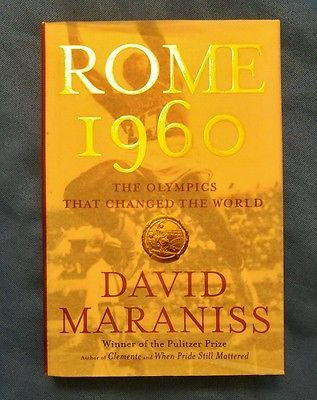
delegation, the first black athlete to carry the American flag. At the opening Parade of Nations at the Stadio Olympico, the crowd was stirred by the sight of Rafer Johnson marching into the arena at the head of the U.S. “The pressures of the cold war played an underappreciated role in forcing change in culture and sports, all much in evidence in Rome. It’s quite a cast of characters including then Cassius Clay, Rafer Johnson, C.K. The narrative introduces us to the Americans and their competitors. The reader experiences the eighteen days of the Rome Olympics through Maraniss’ chronicle of events, athletes, coaches, sports writers, and a few nefarious government players. The shimmering was literal – emanating from the autumnal sun the ancient coloration of the streets, walls, and piazzas the warm angles of refracted light – but it was also figurative, an illumining that comes with a moment of historical transition, when one era is dying and another is being born.”

Yet those days in Rome were infused with a golden hue nonetheless. Rome had its share of spies and propagandists looking to turn every situation to their advantage.

Whatever Avery Brundage’s wishes, the Olympics were in no way isolated from the eruptions and disruptions of the modern world. The Games were bookended by the Soviet spy trial of American U-2 pilot Frances Gary Powers and Khrushchev’s threat to stir up things at the UN, while in between came increasing tension in divided Berlin and violence in the rebellious Congo.

“History is replete with moments that ache with misplaced optimism, and that seemed true of the period of the 1960 Summer Olympics even as signs of a troubled world riddled those days of late August and early September. The superpowers were angling for global influence, and the XVII Olympiad in Rome provided one more stage to showcase the benefits of competing forms of government. In the summer of 1960 only 15 years had passed since the end of World War II. For the last weekend of summer 2016, the Saturday Read takes you to ‘Rome 1960: The Olympics That Changed The World’ by Pulitzer Prize winning journalist, David Maraniss.


 0 kommentar(er)
0 kommentar(er)
